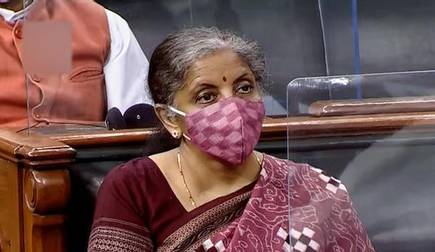42nd GST Council Meet held
On October 5, 2020, Finance Minister Smt Nirmala Sitaraman chaired the 42nd GST Council Meet.
Key Highlights
- The GST Council could not finalize borrowing plans of states to meet the compensation short fall after eight hours of meet.
- 18% of GST over launch satellite launches exempted. The Indian firms earlier had to pay 18% GST to launch their satellites on ISRO rockets. This has now been exempted
- The GST Compensation Cess levy has been extended beyond 2022.
- The Small Tax payers need not file monthly returns from January 1, 2021. The small taxpayers are those whose annual turnover is less than Rs 5 crores. The taxpayers with turnover more than Rs 5 crores will now have to provide HSN Code from April 2021.
- HSN is Harmonised System Nomenclature. It was devleoepd by World Customs Organization as a multipurpose international product nomenclature.
- The dues of IGST of Rs 24,000 crores are to be given to those states that were paid less earlier.
- The GST compensation collected in 2020, which is Rs 20,000 crores is to be disbursed immediately.
The states may borrow Rs 1.1 lakh crores instead of Rs 97,00 crores as fixed in the earlier GST Council meet.
Previous Meet
At the previous GST meet, the Centre provided two borrowing options to the states. Under this arrangement, around 21 states had opted to borrow Rs 97,000 crore to balance the GST shortfall.
The states are currently facing GST revenue shortfall of Rs 2.35 lakh crores according to the central government. The Centre has calculated that Rs 97,000 crores of shortfall is due to the implementation of GST and the rest of Rs 1.38 lakh crore shortfall is due to COVID-19 pandemic.
Under this arrangement, option 1, that is, Rs 97,000 crores is to be provided under consultation with the RBI at reasonable rate of interest. The money can be repaid by the states after five years through collection of cess.
The other option was to borrow the entire compensation deficit of Rs 2.35 lakh crores that includes revenue losses due to GST implementation and COVID-19 led economic slowdown.
In the first option, the interest would be paid from cess and in the second option the interest would be paid by the states.
Month: Current Affairs - October, 2020


